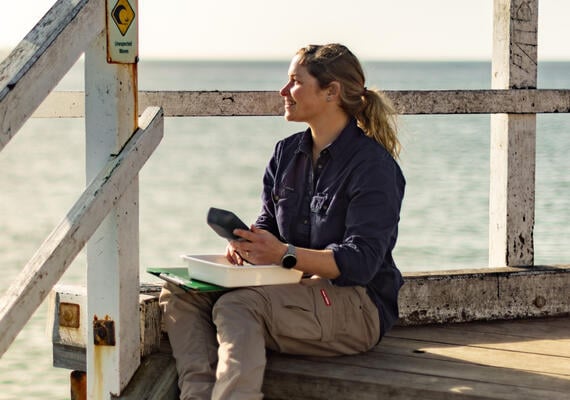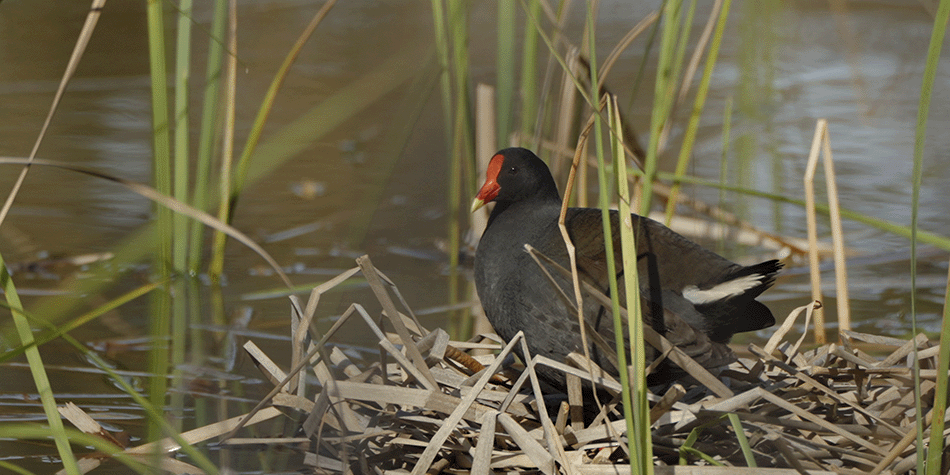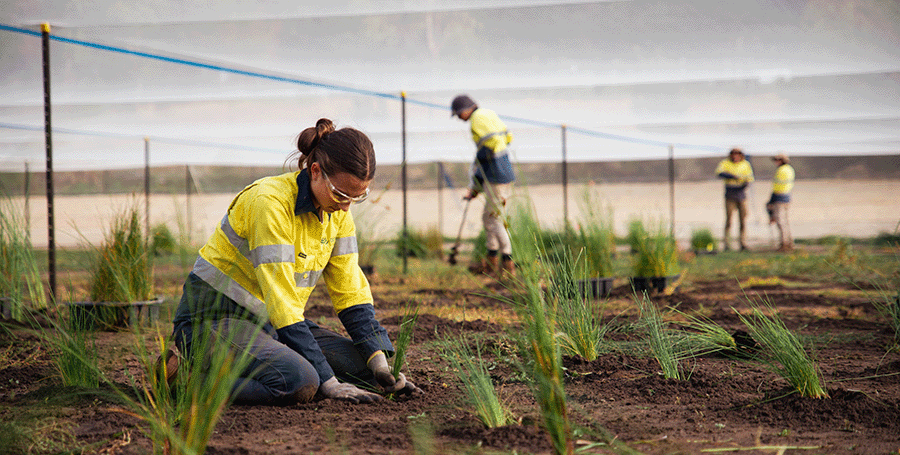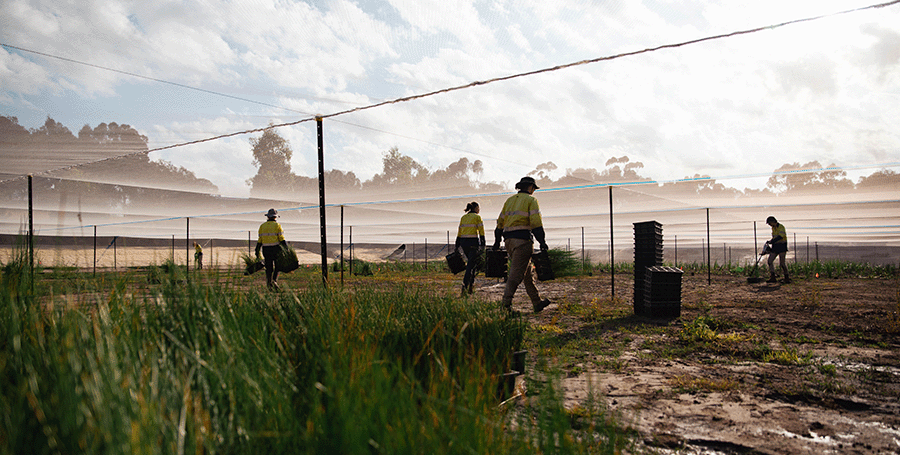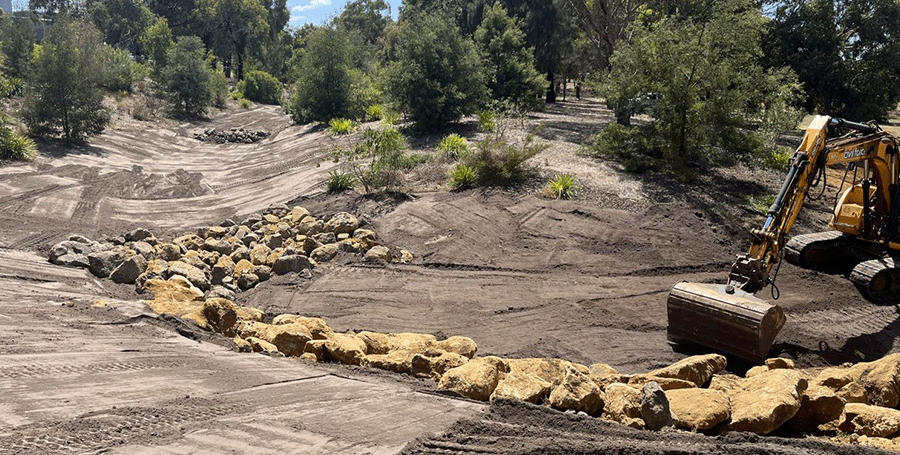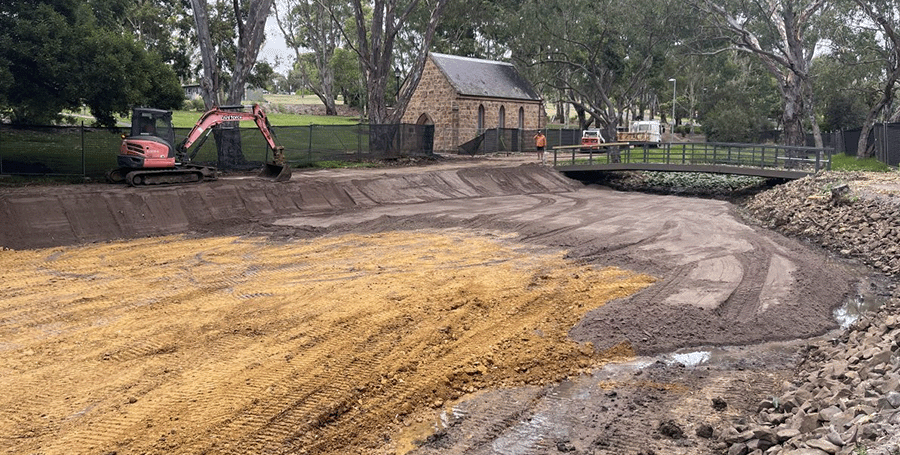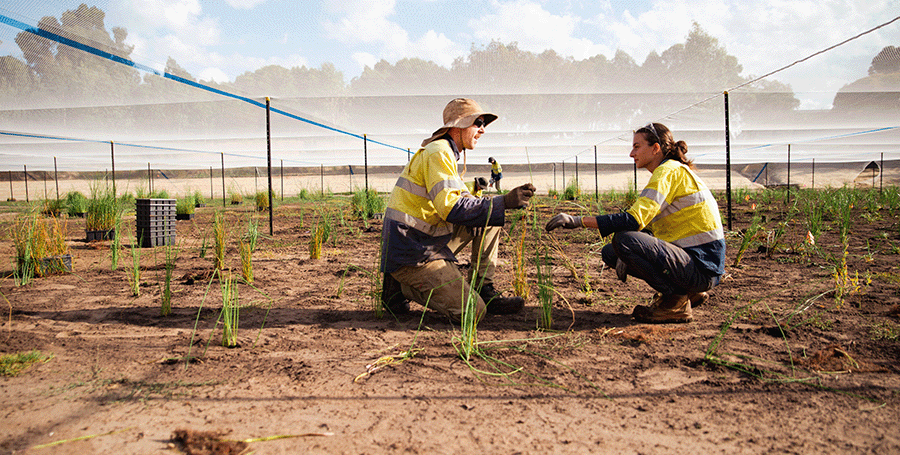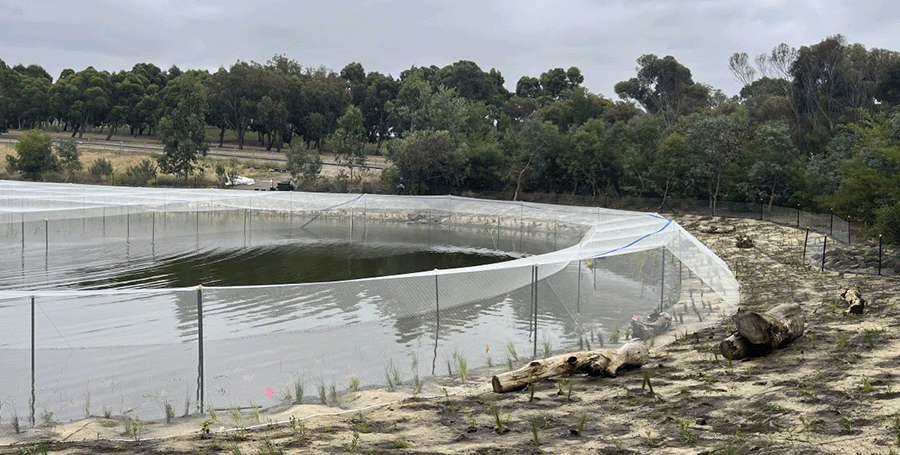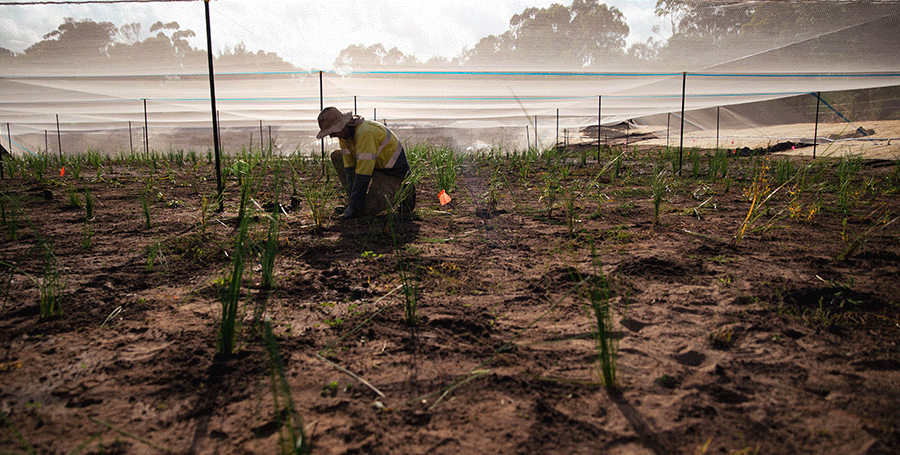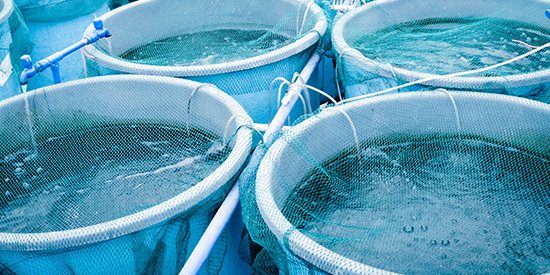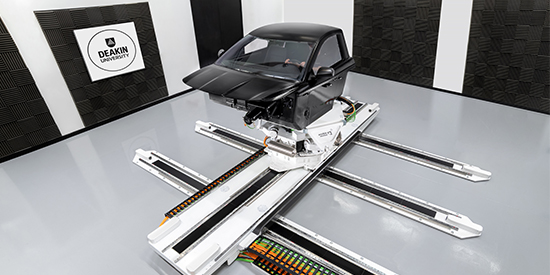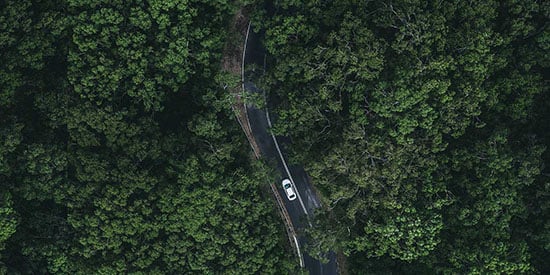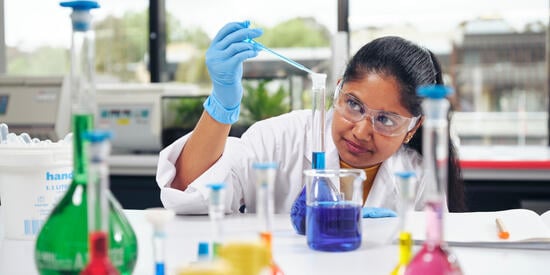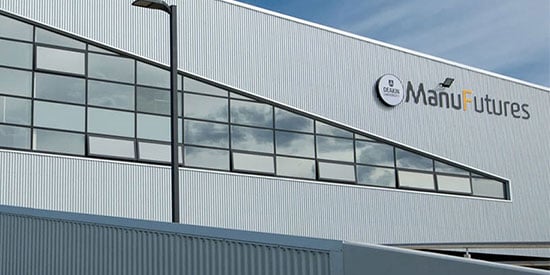IWM works began in January 2022, with a significant conversion of the network of ponds into a constructed wetland system. This is is an important step in delivering better water quality and biodiversity. The six major ponds across campus will
- ponds drained
- sediment build up removed
- banks reshaped
- aquatic plants (macrophytes) planed alongside new plantings
- resident aquatic animals will be temporarily relocated and placed back in the wetlands post construction
The wetlands will attract a more diverse range of water birds, frogs and other aquatic fauna, repopulated also with native fish. The conversion will significantly reduce flooding, chance of erosion and sediment build up and create cleaner water flowing into Waurn Ponds Creek.
This project is the first of many, with several more to come that will help us address other water issues and support future sustainable development of the campus. The IWM Plan presents many opportunities to undertake teaching and research in a ‘living laboratory’, using the campus as a test bed to investigate water management and the impact of climate change on environments, wildlife, and people.
As the climate changes and we continue to grow, we need to manage these valuable water assets deliberately. Integrated water management – including its myriad opportunities for research – is a key element that will help us enhance our environment’s sustainability, while supporting future needs of the campus.
